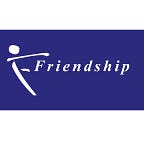Empowering Women by Nurturing Dignity
by Runa Khan
We must look beyond the domestic role women are expected to play in the family to uncover The Real Woman. They are all around us. Every woman has within them incredible dignity, courage and resilience in the face of adversity.
For example, there is Sabina from the remote island of Fechka on the Brahmaputra. Her husband abused and abandoned her and her child, to move away to Dhaka. Sabina enrolled in our Inclusive Citizenship program, fought to recover her dues from him, trained in sewing and learned to support herself. Today she earns enough to support her family. “I take care of my parents and my child eats well and goes to school,” she told me.
Or take Ratna from Sonatola in Bogra. She had a fistula — a tear in a membrane which makes a woman unable to control urine flow. It takes a very simple medical procedure to cure this condition. Her husband left her because of her condition. Poor to begin with, she was now also a social pariah. Hearing about Friendship healthcare services, she had her fistula operated at the Friendship floating hospital. She regained her health and her social standing, and now works and earns her own living.
Where do Sabina and Ratna get their strength from?
When I started Friendship 18 years ago I encountered deep-seated social stigma against women every day in my work.
People from all backgrounds had difficulty believing that I could build the first mobile
hospital, implement health care systems and design a development model in such remote and hazardous areas. Everyone felt there must be a man behind me! When they realized there wasn’t one, I faced condescension and skepticism amongst the development sector, the government and my own social circle, where my work was seen as an indulgence — a mere whim that I
would “get over.”
Being a woman in this world, one needs to work twice as hard as men, to be taken as equally good. Being a woman in the leadership role in development sector leads you to work harder to be a hundred steps ahead for the success and the reputation of your organization. As a female founder of an innovative healthcare system of a development NGO from the Global South of the world to establish an organization in the North requires vision which is commonly faced with hindrances. Each challenge I faced as a woman made me think: if my challenge for acceptance was this difficult despite the privileges available to me, then what monumental challenges must those that I wish to serve confront every day? All our programs involve both genders because we aim to improve and develop the community as a whole. Yet 75 percent of those we help are women because they need immediate support due to their vulnerability.
Empowering Women by Nurturing Dignity Poor people can’t afford poor solutions.
satellite clinics and trained Friendship Community Medic-Aides (FCMs), and serves over 150,000 men, women and children every month. The FCMs are our female community health workers living and working in areas where there are no health services.
The FCMs receive basic medical and field training and advanced training for treatable conditions and diseases. They also sell medicines and basic hygiene products to the communities within the protocols of the World Health Organization and the Bangladesh Government. In this way they give an essential service to the communities but also generate income for themselves. In addition to providing primary health care services in the communities in which they live, the FCMs have an important role in creating awareness about personal hygiene, nutrition, safe water and sanitation, family planning, diagnosis techniques, antenatal care, safe delivery and post-natal care, and other day-to-day health care issues. They can provide first aid in case of emergencies, as well as a limited range of basic medicines which otherwise would not be available at all to the communities. They operate our Mhealth for diagnosis, curing, follow-ups and referrals, of patients who cannot reach a doctor easily. They are also engaged in Behavioral Change Communication (BCC) and help mobilize communities for the delivery of national healthcare programs.
These women are respected and empowered, and they help empower others. They earn a living and know where to seek out basic services, so that they can be self-sufficient when friendship is no longer around.
The same principles apply with our teachers and paralegals. We provide basic training that empowers them to provide necessary services to their communities.
These women change their own role in their society. We only need to provide a little help and fill gaps — training in livestock rearing, agriculture, weaving, sewing or essentials skills in marketing, selling and distribution. Or learning to liaise with the various government sectors so that they can demand their rights as citizens. Working in the development sector means there are always limitations in terms of funds and resources. As a social entrepreneur, efficacy, values and innovation are daily tools. I believe they are the strongest instruments for ensuring sustainability and bringing long-term impact into a community. We come across thousands of Sabinas and Ratnas almost every day, and in them we see Humankind at its very best. Friendship develops its intervention accordingly to the people’s needs to increase their capacity and ensure sustainability of the community members to stand on their own two feet by bringing opportunity, hope and dignity to their lives.
Note: Runa Khan created Friendship, an NGO supporting remote communities in Bangladesh. Established in 2002, Friendship now serves 4.2 million lives a year, providing integrated services in the health, education, sustainable economic development, climate change adaptation, inclusive citizenship and cultural preservation sectors.
Acknowledgement: A version of this article first appeared in the Philanthropy Letter of Fondation De Luxembourg
This article has been retrieved from ResInt Research Review Vol.2=No.1=December 2018 ISSN 2560-8703
